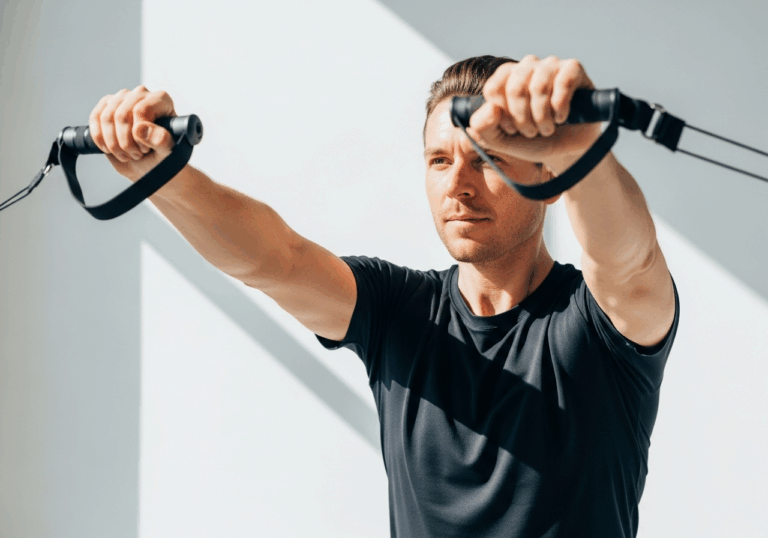Science-Backed Tips
Reduce Anxiety with Progressive Muscle Relaxation
Daily practice can lower anxiety and depression symptoms by ~30%
📊 Did you know?
💡 Why It Matters
1️⃣
A 30% reduction in anxiety and depression can lead to improved daily functioning and quality of life.
2️⃣
Lower anxiety levels can decrease healthcare costs associated with mental health treatment.
3️⃣
Enhanced mood through PMR can improve interpersonal relationships and workplace productivity.
✅ Try These Micro-Tips
🎯
Practice progressive muscle relaxation for 20 minutes daily.
🎯
Focus on tensing and relaxing each muscle group for 5 seconds each.
🎯
Incorporate deep breathing techniques during your relaxation sessions.
🎯
Track your mood changes weekly to assess progress.
📚 The study
The implications of these findings are profound. A 30% reduction in anxiety and depression can lead to better daily functioning and an overall improved quality of life. Lower anxiety levels not only benefit individuals but can also decrease healthcare costs associated with mental health treatment. Furthermore, enhanced mood through PMR can positively impact interpersonal relationships and boost workplace productivity. By incorporating PMR into daily routines, individuals can cultivate a greater sense of well-being and resilience against the stresses of life.
As we continue to explore effective strategies for mental health management, progressive muscle relaxation stands out as a valuable tool for those seeking relief from anxiety and depression. Its simplicity and accessibility make it an appealing option for anyone looking to improve their mental health and enhance their quality of life.
❓ Frequently Asked Questions ❓
Learn more
What is progressive muscle relaxation (PMR)?
Progressive muscle relaxation (PMR) is a technique that involves tensing and then relaxing different muscle groups in the body. It helps individuals become more aware of physical tension and promotes relaxation.
How does PMR help reduce anxiety and depression?
PMR helps reduce anxiety and depression by promoting awareness of bodily tension and facilitating its release. This process can lead to a significant reduction in symptoms, with studies showing approximately a 30% decrease.
How often should I practice PMR for effective results?
For effective results, it is recommended to practice PMR daily for at least 20 minutes. Consistent practice over several weeks can lead to noticeable improvements in mood and anxiety levels.
What are the benefits of reducing anxiety and depression symptoms?
Reducing anxiety and depression symptoms can lead to improved daily functioning and a better quality of life. Additionally, lower anxiety levels can decrease healthcare costs associated with mental health treatment.
Can PMR improve my relationships and productivity?
Yes, enhanced mood through PMR can improve interpersonal relationships and workplace productivity. By reducing anxiety and promoting relaxation, individuals may communicate better and perform more effectively.
What is the recommended duration for tensing and relaxing each muscle group?
It is recommended to tense and relax each muscle group for about 5 seconds during PMR. This allows for sufficient awareness of tension and promotes effective relaxation.
Should I incorporate any techniques while practicing PMR?
Incorporating deep breathing techniques during PMR sessions can enhance relaxation and effectiveness. Deep breathing helps calm the mind and body, complementing the muscle relaxation process.
How can I track my progress while practicing PMR?
You can track your mood changes weekly to assess progress while practicing PMR. Keeping a journal or using a mood tracking app can help you identify improvements over time.
Is PMR suitable for everyone?
PMR is generally suitable for most individuals, but those with certain medical conditions should consult a healthcare professional before starting. It is important to ensure that the practice is safe and appropriate for your specific situation.
How long does it take to see results from PMR?
Results from PMR can vary, but many individuals report noticing improvements in anxiety and depression symptoms within a few weeks of consistent practice. Regular engagement in PMR is key to experiencing its benefits.





